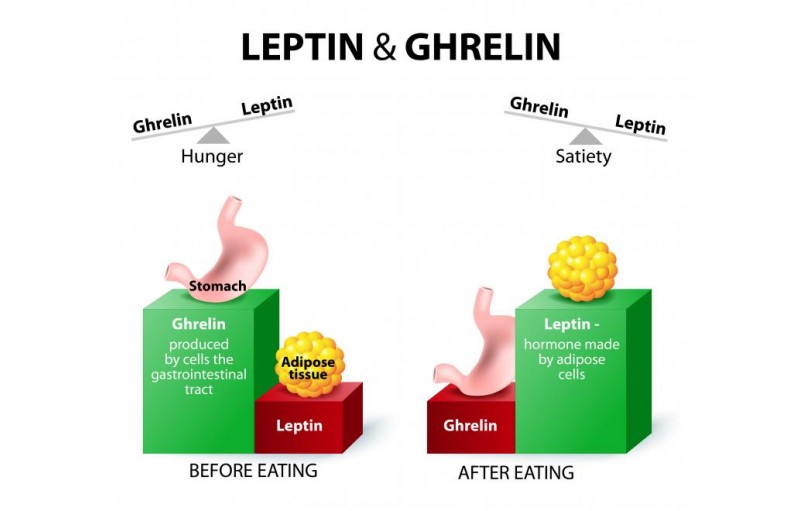Newsletter Subscribe
Your Weight is controlled by 4 Important Hormones in the Body

Do
you know that your weight is controlled by 4 important hormones in the body?
These hormones directly affect the body’s fat storage (especially around your
core area) and your appetite. So, do not always blame food to be the culprit behind
weight/fat gain.
Why
is it that many people, with regular exercises and controlled eating habits, complain
of increase in body weight? You can be one of them.
There
is nothing to worry; know about these 4 hormones and how you can control them.
Hormone #1: Ghrelin
This
“hunger hormone” always tries to send message to your brain (hypothalamus) that
you need to eat (even when you are full)!
Highest
level of ghrelin is always seen before any meal; the lowest level is seen after
any meal. In overweight people, this ‘lowest level’ never happens. This makes
them to eat again and again even when they are full or feel full. As a result,
these people end up “overeating”!
How
to Control Ghrelin?
More
protein needs to be eaten at breakfast (compared to any other meals you will
have). Not only this, avoid high sugar products, energy drinks, sweet drinks—all
these impair the ghrelin response. Also, you need to drink adequate amount of
water.
Hormone #2: Leptin
Important
and the single most fat-burning hormone in the body, leptin controls every other
fat loss hormones in your end.
Leptin
works exactly opposite to ghrelin—it sends message to your brain that there is
enough fat stored in the body and any extra is not required. When leptin sends
this message, you stop overeating.
Overweight
people, surprisingly, have more leptin than ghrelin in their body. Sadly, their
leptin system does not work as it should for fat loss. Here, ghrelin tries to
dominate leptin and takes over, making the overweight people to overeat.
Hence,
the overweight people become ‘leptin resistant’—leptin’s signal does not reach
the brain.
On
the other hand, overweight people who finally manage to lose weight, end up
eating more. In this case, their leptin gets so suppressed that ghrelin takes
over and these people end up overeating.
How
to Control Leptin?
Regular
exercise, low carb diet, no sugar/sweets/sugary drinks, adequate intake of
water, proper sleep—all these do help.
Hormone #3: Insulin
Insulin
is released by the body to keep a check on your blood sugar level. This vital
hormone is “two-faced”—it increases the stored fat; on the other hand, it takes
sugar out of your blood.
The
work of insulin is to carry excess glucose (body produces) out of your blood to
your either your liver, or your muscles or the fat cells for storage.
How
to Control Insulin?
Low
carb diet (also, no sugar or sweets) with eating more fat in the morning, regular
exercise, adequate intake of water, and proper rest will help you control
insulin. You need to know when to eat what—which part of the day to eat
protein, which part of the day to eat carb, and which part of the day to eat
fat. THIS IS CRUCIAL.
Hormone #4: Cortisol
Whenever
your body is in some kind of stress/tension, it releases “cortisol”—popularly
known as ‘stress hormone’. A vital hormone for the body, its continued elevated
level results in overeating and gaining unnecessary body weight.
Like
other hormones, it’s vital to survival. However, chronically elevated levels of
cortisol can lead to overeating and weight gain (3).
How
to Control Cortisol?
Follow low carb diet. Why low carb? Because high carb would lead to insulin spike and coupled with elevated levels of cortisol, your body would keep storing fat.
Conclusion
Now you know ‘it is not always food that is responsible for weight gain’. If the above 4 hormones are well in your control (you have to try your level best), you will lose extra fat, in a healthy way, in no time.
Comments
Write Comment
💬 Need help? Chat with us

